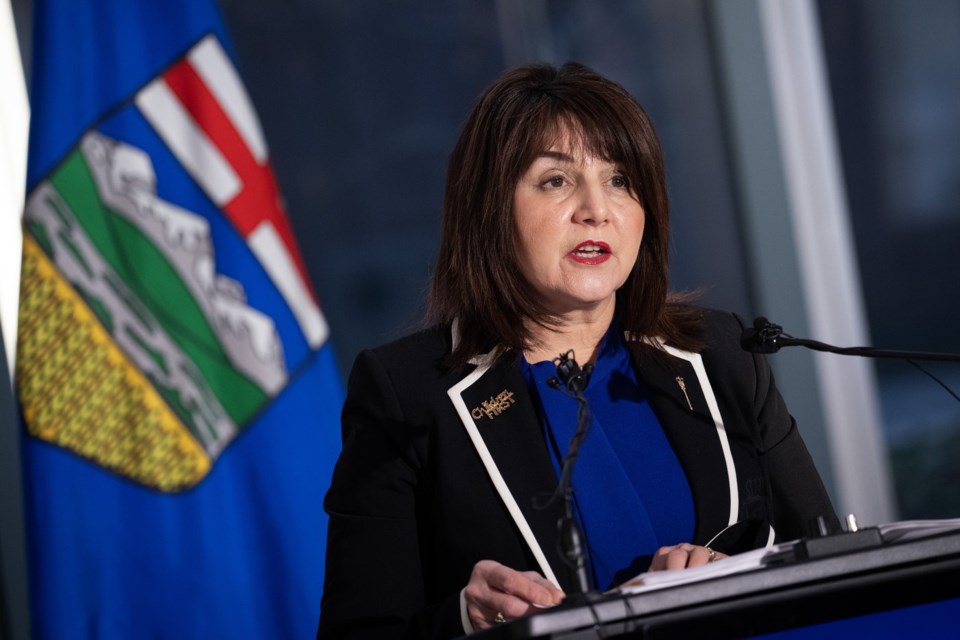EDMONTON — Alberta's government has reached a new tentative four-year pay deal with resident physicians as the province grapples with overcrowding in hospitals and a potential health-care labour disruption.
The resident agreement includes wage increases of three per cent in each of the first two years, and two per cent in each of the last two years - amounting to about 10.4 per cent over four years.
"It also includes market adjustments that put Alberta on par with other western Canadian medical schools," said Health Minister Adriana LaGrange in Calgary on Wednesday.
Resident physicians are those who have graduated medical school but are completing post-graduate training in a residency program to obtain their licence to practise.
Dr. Pauwlina Cyca, president of the Professional Association of Resident Physicians of Alberta, said at a government news conference the agreement will help the province continue to recruit and retain doctors.
"We know that resident physicians who train in Alberta, 70 to 80 per cent of them remain in the province to practise. Our barrier, previous to this agreement, was our compensation, and now that's been rectified," she said.
The association represents more than 1,660 resident physicians in the province.
The announcement comes as contract negotiations with the United Nurses of Alberta may reach an impasse that could lead to a strike in a matter of weeks.
The United Nurses of Alberta, which represents more than 30,000 nurses, is seeking 30 per cent pay raises spread over two years while the Alberta government's standing offer is 7.5 per cent over four years.
Meanwhile, family doctors are waiting for a new compensation deal, which is now delayed, that they say is needed to keep their clinics afloat.
Dr. Shelley Duggan, president of the Alberta Medical Association, told The Canadian Press that Wednesday's announcement of a resident doctor deal is a positive and necessary step.
However, she said it won't solve immediate challenges, including that an estimated 800,000 Albertans don't have a primary care provider and might be forced to access care through hospital emergency rooms.
Duggan said if resident physicians are seeing that their teachers and mentors are not planning to stay in Alberta because family medicine isn't valued and supported, it's going to be hard to convince them to stay.
Inside Edmonton hospitals, she said, family medicine wards have been at 155 per cent capacity, and general internal medicine at 135 per cent in recent days.
"We're already in the storm and we haven't got to respiratory virus season yet," Duggan said.
She added that the province needs a robust and vocal vaccination campaign and to make shots available across health-care providers, including doctors' offices.
LaGrange said vaccinations will be available at more than 2,000 locations starting next week, but clinics represent only five per cent of overall immunizations.
To deal with capacity issues, LaGrange said Alberta Health Services is working to open surge beds, is able to move physicians from other areas of the province, and could increase hours for part-time nurses and hire private agency nurses.
In a statement, NDP Opposition health critic Sarah Hoffman agreed the resident agreement is good news for doctors, but said the government needs to do more to keep them long term.
“Unless this UCP government stops stalling and signs the agreement they have already reached with (family) physicians, many will go to other provinces as soon as they complete their residency,” she said.
This report by The Canadian Press was first published Oct. 9, 2024.
Lisa Johnson, The Canadian Press


